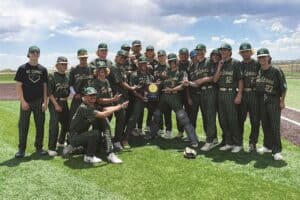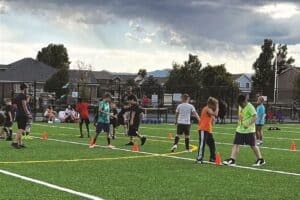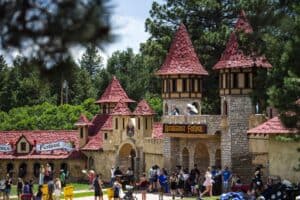Linda Cope, a wildlife rehabilitator in Black Forest, has a new patient that was likely hit by a car – an adult female porcupine found next to a road in Woodland Park, Colo.The porcupine has a fractured pelvis, but she’s still mobile, Cope said. If the break had immobilized the porcupine, the vet would have euthanized her, she said.”She’s a real funny thing. She’s so vocal. All porcupines are vocal, but not as much as she is,” Cope said.”She loves sweet potatoes, strawberry greens, clover and dandelions. People don’t realize porcupines are vegetarians. They don’t eat bugs, and they don’t eat meat.”In August, Cope released a male porcupine that had been hit by a car in the Whistler Ranch subdivision near the Palmer Divide.Porcupines are solitary animals, she said, adding that their lack of a social network is “kind of sad because they are so sweet.”Cope also has taken care of baby porcupines, which are born in the spring. “You should hear the babies,” she said. “They vocalize so much. You can tell when they are happy, when they’re scared.”When they are born, baby porcupines can’t climb. The mother leaves the babies at the foot of the tree during the day, while she climbs up the tree to sleep.She said baby porcupines are able to eat vegetables almost from birth, so it’s unlikely the rescue of the current porcupine in her care has left any offspring in danger.Porcupines look for mates in the fall and that’s why so many of them are hit by cars at this time of year, Cope said.They use their quills to defend themselves. “They move kind of like a skunk,” she said. “They spin and slap their tails, and the quills get in you and really hurt.”Cope has been rehabilitating porcupines and other animals since 1995. She is a licensed wildlife rehabilitator, meeting the stringent requirements of the Colorado Division of Wildlife.In 1996, Cope co-founded the Wild Forever Foundation, with the goal of establishing a rehabilitation center in the Colorado Springs area.”We started a little center downtown with a drop-off place, where we could do birds,” she said. “It was a little rented space owned by the city, and they wouldn’t even give us a break on the rent. The $700 a month rent killed us as a little group.”In 1998, the Wild Forever Foundation gave a presentation to the parks board. “We almost got this little house connected to Fox Run Regional Park,” Cope said. “It could have been a combination nature and rehabilitation center.”However, the plans fell through.Today, group members do all of their rehabilitation work on their own property. The group receives enough grant money to cover the cost of food, Cope said. “Other than that, we’re on our own.”In this community of 600,000 people, we need a center where the Division of Wildlife, the city, the county and the Humane Society could all come together to do the work and educate the public.”Cope said wildlife rehabilitators need support and help from the public. Caring for wildlife is a 24/7 job, with no pay.”I want to help these animals. That’s the most important thing – to help them when they need help,” she said.”Some of us have been doing this for so long, we’re tired. We don’t go on vacations, we miss family events, and we go through a lot of grief.”I think we all care about wildlife when they get hurt, especially when it has something to do with something we (humans) did – our fence, our roads – but we’re not going to solve this problem with just a few people doing the best they can. It’s going to require education and getting the public involved.”For more information on the Wild Forever Foundation, visit www.wildforever.org.







